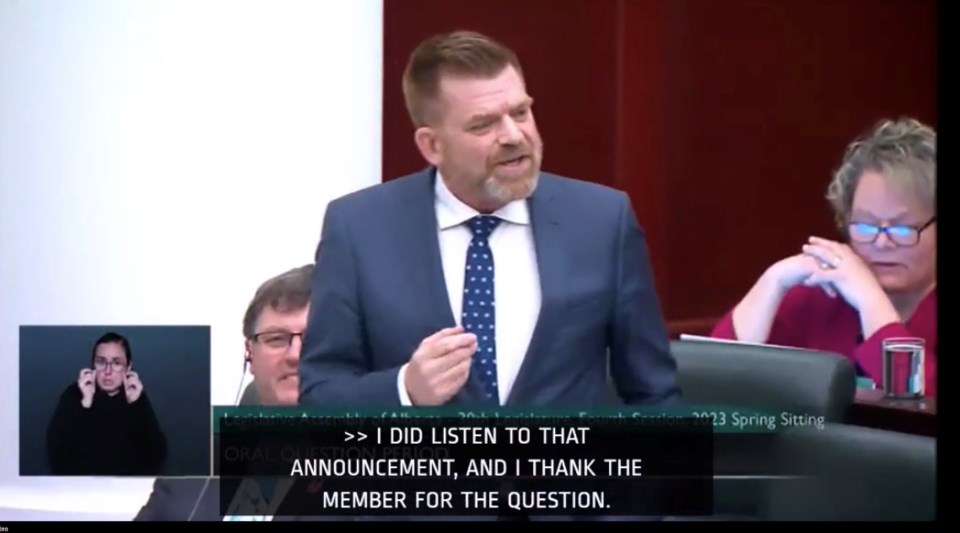An Alberta minister called an NDP proposal to partner with the City of St. Albert to fund the servicing of a new business district "a lot like corporate welfare."
On Thursday, Alberta's Minister of Northern Development Brian Jean responded to a question from NDP MLA Marie Renaud in the legislature, criticizing the recently proposed opposition plan.
Just one day before the political battle played out, Alberta NDP leader Rachel Notley spoke to the St. Albert and District Chamber of Commerce, announcing a commitment to fund part of the servicing of the Lakeview Business District if elected.
"I did listen to that announcement and I thank the member for the question. I I was kind of surprised because it sounds a lot like corporate welfare based on the announcement," Jean said.
On Wednesday, St. Albert Mayor Cathy Heron said the announcement was welcome news and noted the next step to get the west side of development underway is to start the work on Lakeview, which is slated to become an industrial area in the city.
“It's our number one priority,” the mayor said.
“We get calls all the time looking for people that want to set up in St. Albert and we are out of land.”
On Thursday, Jean said during question period that he has sat down with the city and has discussed how they can remove regulatory burdens to get the businesses district built and help assist to get the project going.
"There's only one taxpayer and that is Albertans. We have to manage their money properly and fairly and we'll do just that," Jean said.
The Lakeview Business District is a currently non-serviced portion of land covered under the West ASP which is partially owned by the city. It sits west of Ray Gibbon Drive and north of Big Lake.
Heron said the city will be looking for a partnership between the city, province, and feds, with each group paying roughly one-third of the cost. Right now Notley said she doesn't know what the final cost will be, but is committed to working with the city to get a funding deal done.
Right now, Heron said they don’t have a final number on the cost of the project, however she estimates it could be anywhere from $60 to $80 million. A lot of the costs are recoverable through offsite levies, Heron noted, which is a way developers pay back some of the costs for the services once the land is developed.
“The actual cost of the public is maybe $30 million,” Heron said.
If the funding for the district comes through this year, Heron said she could see shovels in the ground by next year, and building going up by 2026.
The provincial election is slated for May 29, 2023.



